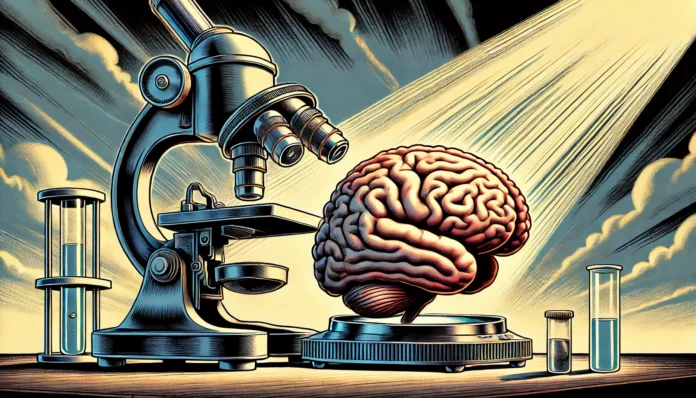Introduction
Why do so many people believe in gods, spirits, and the supernatural? Is faith a product of culture, or is it something deeper—perhaps even hardwired into our brains? Recent advances in psychology and neuroscience suggest that our tendency toward belief is not just a matter of upbringing or tradition, but a result of cognitive processes shaped by evolution. Understanding these processes not only sheds light on the persistence of religious belief, but also highlights the appeal of atheism as a conscious effort to overcome our brain’s natural biases.
The Brain’s Bias for Belief
Human brains are pattern-seeking machines. From an evolutionary perspective, our ancestors’ survival depended on their ability to detect patterns in the environment—such as the rustle of leaves indicating a predator or the changing seasons signaling when to plant crops. This tendency, known as patternicity, is so strong that we often see patterns where none exist. According to Scientific American, this cognitive bias can lead us to attribute agency and intention to random events, a phenomenon called agenticity. When lightning strikes or misfortune befalls us, our brains are primed to look for a cause—often a supernatural one.
Cognitive Biases and the Supernatural
Several well-documented cognitive biases contribute to religious belief. The hyperactive agency detection device (HADD) is a term coined by cognitive scientists to describe our tendency to assume that events are caused by intentional agents. This bias may have evolved because it was safer to mistake a shadow for a predator than to ignore a real threat. Over time, this bias could have led to the widespread belief in invisible agents—gods, spirits, and ancestors—who control the world around us.
Another key bias is the confirmation bias, which leads us to seek out information that supports our existing beliefs and ignore evidence that contradicts them. This makes religious beliefs particularly resilient, as believers are more likely to notice events that seem to confirm their faith and dismiss those that do not.
Evolutionary Roots of Faith
Why would evolution favor brains that are prone to religious belief? One theory is that shared beliefs and rituals helped early human groups bond and cooperate, giving them an advantage over less cohesive groups. According to research summarized by the Pew Research Center, religious communities often provide social support, moral guidance, and a sense of belonging—all of which can enhance survival and well-being.
Additionally, belief in supernatural punishment may have helped enforce social norms. If people believe that a god is always watching and will punish wrongdoing, they may be more likely to behave ethically, even when no one else is around. This idea is supported by studies showing that reminders of supernatural agents can increase prosocial behavior (Nature Human Behaviour).
The Fear Factor: Coping with the Unknown
Fear and uncertainty are powerful motivators for belief. When faced with the unknown—whether it’s death, disease, or disaster—humans naturally seek comfort and explanations. Religion often provides both, offering answers to life’s biggest questions and the promise of control over fate. As Psychology Today notes, belief in a higher power can reduce anxiety and provide a sense of meaning, especially in times of crisis.
This does not mean that religious belief is irrational or foolish; rather, it reflects the brain’s attempt to make sense of a complex and unpredictable world. However, understanding the psychological roots of faith can help us recognize when our beliefs are driven more by emotion than by evidence.
Atheism: Overcoming Our Hardwired Tendencies
If belief is so deeply rooted in our brains, why do some people reject religion altogether? The rise of atheism and secularism in many parts of the world suggests that it is possible to overcome our cognitive biases—at least to some extent. Education, critical thinking, and exposure to diverse perspectives can all help individuals question inherited beliefs and adopt a more evidence-based worldview.
Recent surveys by the Pew Research Center show that many atheists cite science, logic, and a lack of evidence as reasons for their disbelief. For these individuals, understanding the brain’s tendency toward faith is not a reason to accept religious claims, but a challenge to be met with skepticism and inquiry.
The Appeal of a Secular Worldview
Embracing atheism does not mean rejecting meaning or morality. On the contrary, many atheists find purpose in human relationships, creativity, and the pursuit of knowledge. Secular ethics, based on reason and empathy, can provide a strong foundation for living a good life without recourse to the supernatural.
Moreover, recognizing our brain’s biases can make us more humble and open-minded. As Scientific American points out, understanding the science of belief can help us appreciate the diversity of human experience and foster dialogue between believers and nonbelievers alike.
Further Reading and Resources
- Why Your Brain Wants to Believe in God – Scientific American
- Why People Believe in God or Not – Pew Research Center
- Supernatural Punishment and Prosocial Behavior – Nature Human Behaviour
- Why Do People Believe in God? – Psychology Today
- The Evolutionary Advantage of Believing in God – BBC Future
As we continue to unravel the mysteries of the mind, the science of belief offers valuable insights into why faith persists—and how a secular, evidence-based approach can help us rise above our evolutionary programming.

